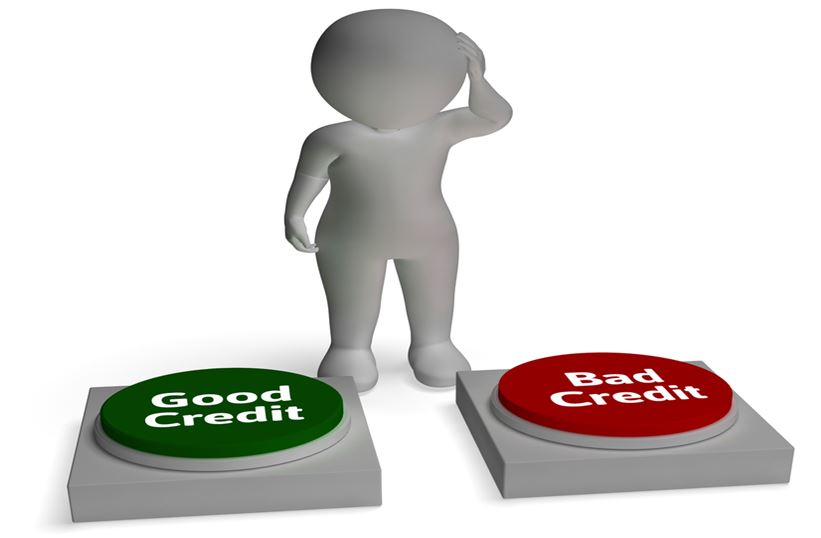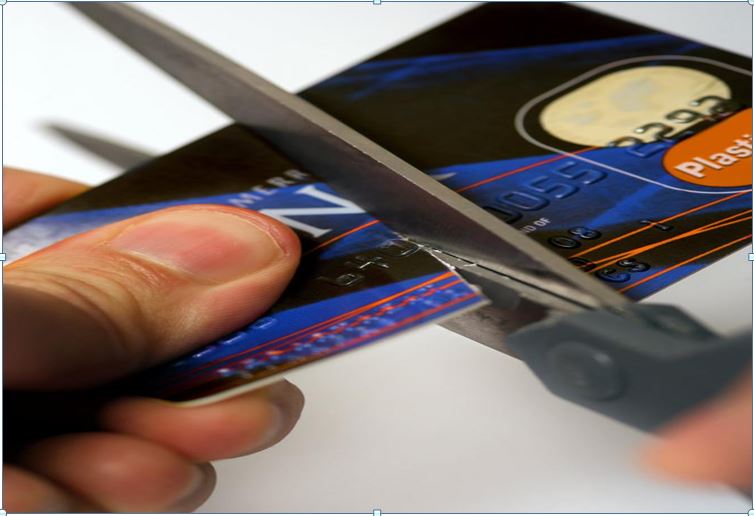
by admin | Bankruptcy, Consumer Proposal, Credit Counseling, Credit Repair, Debt Management
Believe me, if you aren’t careful with your spending, it won’t take long for your hard-earned money to vanish into thin air. Are you an impulsive spender? If yes then I’m betting that you scratch your head at the end of each month wondering where all your money went. The good thing is that you’re not alone. There are thousands, if not millions, of people in the world like you. To ensure that people don’t run out of money at the end of each month, financial experts and credit counselors have come up with several ways of getting your spending under control. The following are four of them.
Avoid buying impulsively
Are you easily excited by the idea of shopping and finding a bargain? If yes then you’re more than likely to buy impulsively. If you want to keep your spending and debt under control then buying impulsively is something you mustn’t do. The best way to control this habit is thinking about the longer-term consequences of buying and owning something before you spend your hard-earned money on it. Also, think about the impulse purchases you made in the past that you later regretted. This will ensure that you don’t buy impulsively which in turn will allow you to control your spending.
Avoid treating shopping as a means to improve your mood
The idea of shopping to improve your mood is something I find quite baffling. Though shopping can lift your mood temporarily, you should never use it as a means to improve your mood. When this becomes a habit, you’re doing two things: using temporary fixes for your problems and spending when you don’t need to. If you want to get your spending under control then ditch shopping as a means to improve your mood.
Keep track of your financial situation
The majority of the people who spend impulsively or excessively are individuals who have little idea of their financial situation. People who don’t keep track of their financial situation are often guilty of spending excessively. If you want to get your spending under control then keeping track of your financial situation would be a good thing to do. To do this, maintain up-to-date records and regularly check how much money you have in your bank account and elsewhere. Additionally, develop a realistic budget based on your income and past expenses. Once you’ve developed the budget, see how it fits with your spending. You need to control your spending if your spending exceeds your budget.
Have a thirty-day rule
Wise men say that if you do something for thirty consecutive days, it becomes a habit. This is why you need to make use of the thirty-day rule. Basically, you need to avoid spending on the ‘unimportant’ things that you love spending on such as home décor, speakers for your car, and sports memorabilia for thirty days. Once you’ve successfully done that, you’ll no longer have the urge to spend on the aforementioned things which will help you to keep your spending under control.

by admin | Consumer Proposal, Credit Counseling, Credit Repair, Debt Management

Most people are looking for painless ways of saving money. If you’re one of them then you must know that there’s only one secret to saving money: the less you spend, the more you save. However, contrary to popular belief, spending less doesn’t necessarily mean giving up on the things you love. While cutting unnecessary spending is fruitful, you don’t have to give up everything you enjoy to save money. There are several ways for you to save money without giving up the things you love. Following are 4 creative ways of saving money without giving up the things you love.
Get your spending under control
This is something that most financial experts and credit counselors recommend. If you’re serious about saving money then you must get your spending under control. Now, most people think that this means giving up on the things they love. This is not true. Getting your spending under control simply means having a budget and avoiding impulse buying. Once you ensure these two things, you will be able to save money without giving up on the thing you love.
Shop smarter
If you want to save money then you must improve how you shop. If you always pay full price for an item then a good way for you to save money would be buying things at a discount. Even without spending a lot of cash, you can enjoy the shopping experience. All you need to do is be a bit more prudent when buying things. The majority of the stores have clearance sales. In clearance sales, things cost a lot less than they do during the regular shopping season. For this reason, clearance sales are the best time to buy your favorite shoes, clothes or other accessories. This will allow you to do two things: buy the things you love and save money.
Watch movies and have weekend dinners at home
Most couples love going out to the movies or having dinner at a high-end restaurant on the weekend. If you’re one of them then a good thing to do would be spending on weekends at home. Rather than going out to the movies or having dinner at a high-end restaurant, you, and your partner can watch a movie on the DVD player and make exotic meals at home. This will allow you to have fun on the weekends and save some money.
Look for cheap but fast cable and internet services
The internet and cable television are two things most people cannot live without. While no one is asking you to give up these services, you should limit the money you spend on them. There are many fast cable and internet services that offer their services at a low cost. These are the services you need to find and use.
The aforementioned ways are some of the ways to save money without giving up the thing you love. To find out about the other ways of saving money, get in touch with a credit counselor.

by admin | Consumer Proposal, Credit Counseling, Debt Management

Do you know how much is the average American household credit card debt? It is $5,700. If that didn’t worry you then this surely will: the average debt for households that don’t make regular credit card payments is over $15,000. For many households, paying off their credit card debt is a challenge. Nonetheless, debt is a financial reality and something households will have to deal with. You don’t have a choice: you have to manage your credit card debt just like you manage your other financial expenses and obligations.
Most Americans and Canadaian struggle to manage their credit card debt. However, before you start losing hope, determine whether your credit card debt is even a problem. After you’ve determined that, you need to develop a plan to manage and ultimately pay off your credit card debt. Depending on how you use them, credit cards can be a good or a bad thing.
A truly helpful financial tool, a credit card is a good way to meet your immediate financial needs such as performing car repairs, paying medical bills, and dealing with unforeseen disasters. However, if you use them inappropriately, credit cards can lead to financial problems in the long-term. Basically, you need to use your credit card (s) sensibly and develop smart strategies for managing your credit card debt. So what are the appropriate ways of managing credit card debt? Here are 3 smart strategies for managing credit card debt that credit counselors recommend.
Change the lifestyle causing debt
The first and foremost thing that you need to do to manage your credit card debt is moving away from the lifestyle that causes debt. Often, debt is caused by immoderate spending and lack of checks and balances. One of the best thing you can do control your credit card debt is avoid impulse buying.
Stop the use of credit card
If you’re among the American households with over $15,000 credit card debt then stop using your credit card right away. You will only add to your credit card debt if you continue buying things on credit. If you continue buying things on credit, there will eventually come a time when pay off your credit card debt is no longer possible. Surely, you don’t want that! If you’re buying grocery or other ‘important’ things for your house then use cash to pay for them. Also, avoid buying something you don’t have the cash for.
Re-adjust your budget
If you don’t have a household budget then develop one right away. On the other hand, if you have a budget but still find it difficult to manage your expenses then consider re-adjusting your budget. Basically, you need to re-adjust your budget to get rid of unnecessary expenses such as the evening coffee at Starbucks until you’ve paid off your credit card debt.

by admin | Consumer Proposal, Credit Counseling, Credit Repair, Debt Management

It is true that bad credit is costly and causes a lot stress. However, contrary to popular belief, it is the not the end of things. You can recover from even the worst of credit situations. If your credit situation is far from ideal then you may find fixing your credit rating a bit of a challenge. However, no matter how bad your credit situation becomes, you can still improve your credit rating. Some credit repair approaches may require you to do a bit of research. However, the majority of the ways to improve credit rating are easy to perform.
It is important for you to keep in mind that your credit rating will be impacted by every monetary decision you make. There are many things that you can do in your everyday life to improve your credit rating. Moreover, you must avoid certain things if you want to better your credit situation. Following are the Do’s and Don’ts for improving your credit rating.
Do’s
We’ll start with the Do’s for improving your credit rating.
Do pay your bills on time
The first of the Do’s for improving your credit score is paying your bills on time. Your credit rating or score depends a lot on your payment history. People who make timely payments are bound to have a good credit rating.
Do use your credit cards conservatively
According to a 2009 financial report, people who spent less than 30% of their available credit has the best credit rating. For this reason, you must ensure that you use your credit cards conservatively. Stop impulse buying and using your credit card to buy unnecessary things. Once you do that, you’ll see significant improvement in your credit rating.
Do check your credit history
It is important for you to regularly check your credit history. Banks use your credit history to score you. If your history contains incorrect data, you may be declined a new loan or credit card even if you pay your bills on time. So, regularly check your credit history to ensure there are no mistakes in it.
Don’ts
Now that we’ve looked at the Do’s for improving your credit rating, it’s time to reveal the Don’ts for improving your credit score.
Don’t max out your existing credit
A mistake that people make time and again is maxing out their existing debt. This is something you mustn’t do. Your credit rating will suffer if you touch the limit so avoid doing that.
Don’t delay your payments for too long
This is a no brainer. If you continue delaying your debt payments, the interest on the debt will keep on increasing. Ultimately, your debt will become impossible for you to pay off. To avoid this from happening, don’t delay your payments for too long.
There you have it—the Do’s and Don’ts for improving your credit rating. To find out more about improving your credit score, get in touch with a credit counselor.

by admin | Consumer Proposal, Credit Counseling, Debt Management

If you don’t use it appropriately, your credit card may cause a lot of problems for you in the future. So, how do you avoid credit card trouble? Simple! By spending only what you can afford to pay back promptly. Many people in the United States cannot afford to pay for a house or a vehicle. So, to buy a house a vehicle or house, these people borrow money from a bank or other lender. While debt isn’t necessarily a bad thing, it is recommended that you manage your debt wisely to avoid any future financial problems.
Before you start managing your debt, you must find out how much debt you have. How can do that? Following is an equation that shows your debt to income ratio:
Debt to income ratio= Monthly fixed loan repayment
Gross monthly income
By using the aforementioned equation, you can find out whether or not you have too much debt. In case you have significant debt, you must find out the best ways to manage it. Following are some debt management ways that credit counselors recommend.
Budget
Are you concerned about your long-term financial health? If yes then the first thing that you need to do is create a budget. When creating a budget, the first thing that you need to do is create two lists: income and expenses. Once you’ve done that, minus your total expenses from your total income. On the other hand, you have nothing to worry about if you get a positive number because number indicates that you’re living below your means. If you get a negative number then it is a clear sign that you need to mend you ways. Basically, a negative number denotes that you’re living beyond your means. Now, there are two ways of dealing with this situation: decrease spending or increase income.
Develop a debt management plan
Using credit wisely is the only way to achieve good financial health. Also, you’ll need a debt management plan if you want to minimize your debt. To develop a debt management plan, the first thing that you need to do is list all of your debts. Starting from the smallest, rank your debts according to their size. Once you’ve listed down your debts, you need to work out how you’ll pay off each debt. Once again, start with the smallest debt.
Many people would advise you to pay the debts with higher interests first. However, a considerable amount of time is required to pay off these debts. So, if you start with these debts, you’re likely to get ‘stuck’. On the other hand, if you start with the smallest debts, you score some early ‘wins’ which will give you the confidence required to deal with and pay off the larger-sized debts.
Debt can cause a lot of future problems if isn’t dealt with appropriately. By using the aforementioned ways and talking to credit counselors, you can ensure that debt is not a problem for you in the future.

by admin | Bankruptcy, Consumer Proposal, Credit Counseling, Credit Repair, Debt Management

For many people, managing debt is a real challenge. Luckily, there are people who can help you to manage and pay off your debt. The people I’m referring to are credit counselors. The bad news is that not all credit counselors are the same. Some of them may not act in your best interest. For this reason, you need to find ways to separate the good from the bad. Once you know the ways of filtering out the ‘good’ credit counselors, it will become easy for you to find the right credit counselor for yourself. So, without wasting any further time, let’s take a look at the 5 ways to find the right credit counselor.
Know what you want
When looking for the right credit counselor for yourself, the first thing that you need to do is find out what you want from the counselor. Are you looking for general advice, simple budgeting, debt management, or bankruptcy counseling? Once you determined this, you can start searching for a credit counselor who ticks all the boxes.
Find out the services offered by the different credit counselors
When looking for a credit counselors, one of the most important things that you need to do is find out the services offered by the different counselors. It is true that debt counselling is one of the most important offered by a credit counseling agency. However, reputed counselors offer more than just debt counselling. So, look for counselors who offer budgeting and bankruptcy services in addition to debt management.
Determine how much you can pay for credit counseling
Let’s be honest, no one provides services for free including credit counselors. While your first session with them may be free of charge, you will have to pay for any follow-up sessions. For this reason, you need to determine how much you can afford to pay for credit counseling. Before working with a credit-counseling agency, inquire about their fees and costs. Ideally, you should get the prices or quotes in writing.
Find out about confidentiality
Most people who get credit counseling want to keep their information confidential. If you’re one of them then find out if the credit-counseling agency you’re thinking of working with keeps consumer information confidential.
Finding the right credit counselor is not easy. However, by using the 5 ways to find the right credit counselor mentioned above, you can make the task simple.













